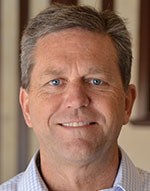Faith, Hope and Charity / David Siler
Buy local and make a profound difference
 It is easy for those of us in the “big city” to think that Indianapolis is the center of the universe—or at least the center of the archdiocese. Our views of the entire state of Indiana can often be shaped by what we observe and know of life in our state’s capital. However, some of us need to be reminded from time to time that Indianapolis is not representative of all of the state.
It is easy for those of us in the “big city” to think that Indianapolis is the center of the universe—or at least the center of the archdiocese. Our views of the entire state of Indiana can often be shaped by what we observe and know of life in our state’s capital. However, some of us need to be reminded from time to time that Indianapolis is not representative of all of the state.
In Indiana, we have towns called Gnaw Bone, French Lick, Oolitic, Toad Hop, Brownstown and, yes, we even have a Siberia. The fact is that most of the 39 counties that make up our archdiocese are largely rural.
Life in rural Indiana is different than life in our big cities. Farming and the presence of large facto ries in and around many of our rural areas used to provide work that allowed most families to flourish. However, the past several decades have ushered in a new set of challenges for our rural brothers and sisters.
The pressure to keep costs low and compete with products produced more inexpensively in other countries has meant the demise of the majority of factories in our smaller towns. No longer can families count on working in relatively well-paying industries, where perhaps their parents and grandparents may also have worked.
Small family farms struggle mightily to compete with large agri-businesses, and many have simply given up. Multi-generational farms that once provided a good living cannot push their costs low enough to match the prices of enormous agricultural ventures.
In manufacturing and in farming, price has become king and the king has wreaked havoc on rural Indiana.
For many of our neighbors in rural areas, the problem of poverty is made worse by a lack of public transportation and adequate health care, as well as the scarcity of choices for higher education and social services.
Most of us like a good bargain and would rather pay a lower price for similar items. However, I would suggest that the elevation of price as king has supplanted what should truly be king—human dignity and the common good.
In his encyclical, “Caritas in Veritate,” Pope Benedict XVI wrote, “It is good for people to realize that purchasing is always a moral—and not simply an economic—act” (#66).
I invite us all to consider the effects of our purchasing decisions. Every day, we have the opportunity to make decisions about where and how we spend our money. Most of the time we don’t really think about where that head of lettuce came from, or how that coffee ended up in that can in our pantry.
We can all make a profound difference in the lives of workers and growers by buying locally whenever possible. It may require extra effort, but perhaps you can identify a local family farmer who can supply you with much of your produce and/or meat products.
Let us pray for and actively engage in the resurgence of rural Indiana.
(David Siler is the executive director of the archdiocesan Secretariat for Catholic Charities and Family Ministries. E-mail him at dsiler@archindy.org.) †
 It is easy for those of us in the “big city” to think that Indianapolis is the center of the universe—or at least the center of the archdiocese. Our views of the entire state of Indiana can often be shaped by what we observe and know of life in our state’s capital. However, some of us need to be reminded from time to time that Indianapolis is not representative of all of the state.
It is easy for those of us in the “big city” to think that Indianapolis is the center of the universe—or at least the center of the archdiocese. Our views of the entire state of Indiana can often be shaped by what we observe and know of life in our state’s capital. However, some of us need to be reminded from time to time that Indianapolis is not representative of all of the state.